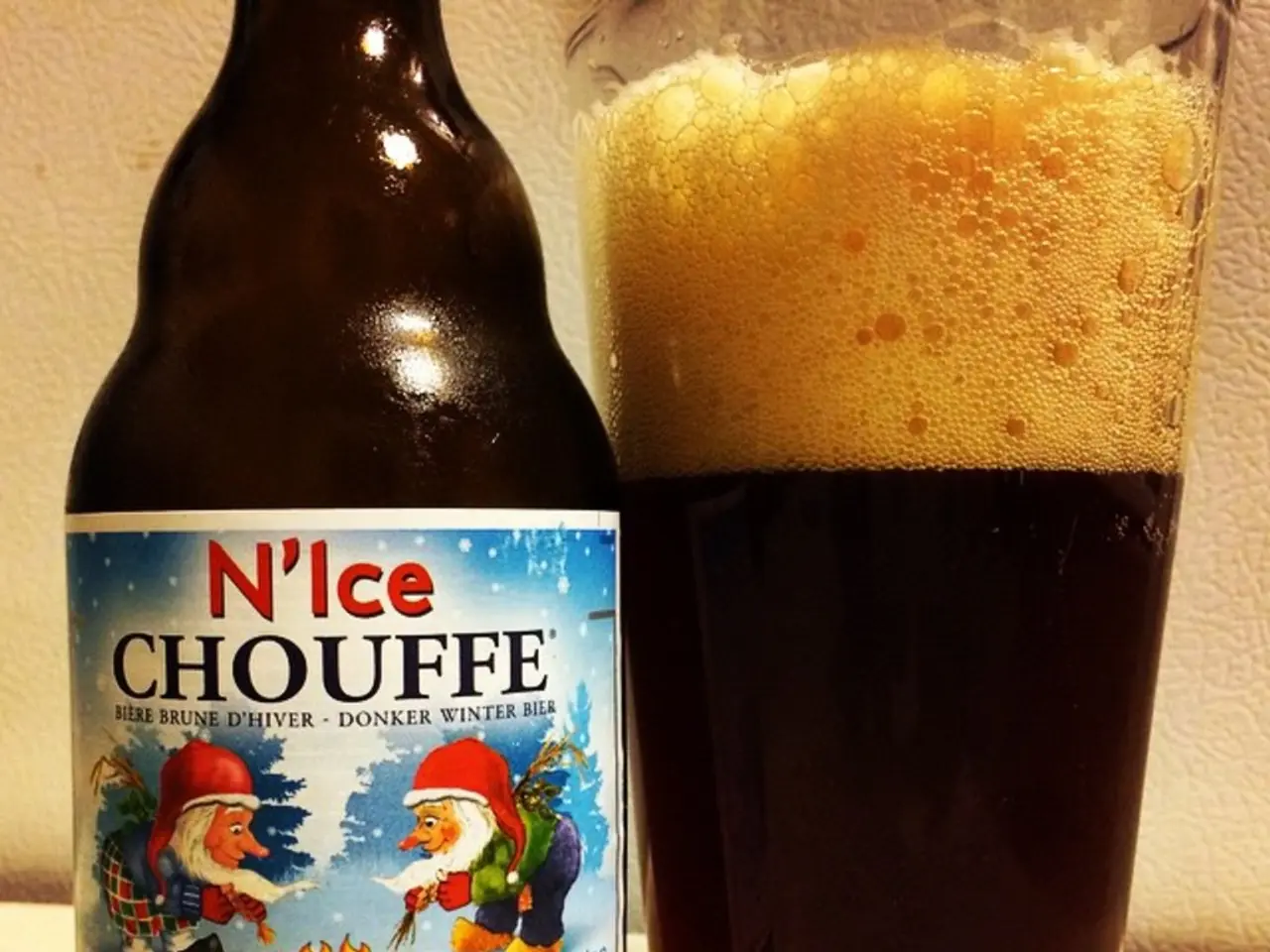Pressure mounts for breweries and eateries as beer preservation becomes vital - Reduction in Beer Production - Pressure mounts for Brewer and Restaurant
In an unexpected turn of events, the year 2025 has witnessed a significant drop in beer sales across Germany, marking a historic low with over 570,000 hectoliters less sold in the first two months compared to the previous year[1]. This downturn has sparked concerns within the industry, with traditional breweries like Veltins facing pressures amid this market contraction[3].
The German beer industry is grappling with shifts in consumer preferences, as beer lovers increasingly opt for alternatives such as alcohol-free and craft beers[3]. This trend is evident in the growing preference for beer in cans, according to market researchers at NielsenIQ[2].
One of Germany's major beer producers, Veltins, is likely impacted by this decline. While specific data on Veltins alone is not available, the general market trend indicates severe pressures on traditional breweries. Some historic breweries have already ceased operations after more than a century due to these market difficulties[1]. To remain competitive, Veltins may need to adapt its product portfolio, possibly increasing its focus on non-alcoholic beers and craft-style products[3].
For the hospitality industry in Germany, the steep drop in beer consumption poses serious challenges. Beer remains a cornerstone of social life in German pubs, bars, and restaurants. The decline in beer sales threatens these businesses' revenues and may accelerate the closure of traditional beer-serving establishments or force them to diversify their offerings more aggressively[1][2].
Despite the near-term difficulties, market forecasts suggest a potential turnaround by focusing on innovation. The German beer market is expected to grow at a compound annual growth rate (CAGR) of around 3.9% from 2025 to 2035, driven by premium, craft, and low-alcohol beer segments[4]. Technological innovations and evolving consumer engagement models may help stabilise and eventually grow the market, including in the hospitality sector.
The industry is unlikely to make up for the unexpectedly high decline by the end of 2025. The German Brewers' Federation finds the year's performance disappointing[1]. However, there are signs of resilience, with Veltins achieving a 2.3% increase in sales to 1.78 million hectoliters in the first half of 2025[1]. The Bundestag is urged to quickly implement the agreed-upon relief measures, particularly the 7% VAT reduction on food, to support the struggling industries[1].
As the landscape shifts, strategic adaptation becomes crucial for both breweries like Veltins and hospitality enterprises to survive and thrive amidst changing consumer preferences and increasing global competition.
- Recognizing the need for collective action, the community aid organizations in Germany are rallying to provide support for struggling breweries, such as Veltins, and the hospitality industry, aiming to foster a common organization of the market that can bolster their resilience in these challenging times.
- Amidst the unfavorable weather conditions prevailing in Germany, the common organization of the market for the beer industry is being re-evaluated, considering the impact of climate change on hops production and the need for more innovative and adaptive farming practices to ensure a sustainable supply chain.








